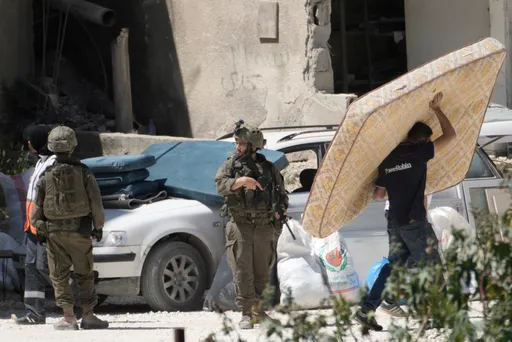The US rhetoric on its so-called war on terror is responsible for the global proliferation of anti-Muslim sentiments, a respected scholar and author has said, terming the growing religious hatred against the community as a “neo-colonial project”.
Prof Khaled Ali Beydoun’s recently-published book The New Crusades: Islamophobia and the Global War on Muslims has been hailed as a pathbreaking study on the subject for its minute examination of the issue.
“Islamophobia is a tool and a weapon used by the US to advance its global power and to seize coveted natural resources such as oil in Iraq,” says Prof Beydoun, a faculty at Wayne State University Law School in the US. He was speaking to Anadolu Agency exclusively.
“I chose the title because the term ‘crusade’ is used to describe the historical conflict between Islam and Christianity,” he says. “...When the war on terror was launched 21 years ago, then US President George Bush called it a ‘crusade’. So I drew on these two events to give the title to the book.”
Beydoun says that besides extensive research for the book, he interviewed people exposed to anti-Muslim hatred in many countries such as India, China, France and Canada.
While writing the book, he aimed to understand the feelings and thoughts of the Muslim community struggling for existence in different countries.
He says that anti-Muslim sentiment is not the same in every country. “Islamophobia is not experienced by Muslims in a similar way. It really depends on where they are, which country they live in, what their identity is. The Islamophobia that Uyghur Muslims experience is strikingly different from the one that we experience.”
‘Hotbed of Islamophobia’
Drawing on his observations based on interviews he conducted in European countries, Beydoun says that “Europe has become a hotbed of Muslim hostility for many reasons”.
“As Muslims practice their religion, as women wear headscarves, as men wear white robes and grow beards, as they go to mosques, it’s easy for Europeans to discriminate against them on religious grounds.”
He also points out that Muslims feel like they are being watched by “big brother”, as in dystopian novels. “Muslims struggle with this as victims of destructive policies such as surveillance, and the privacy of individuals are often violated due to suspicion of terrorism.”
He adds that discrimination against Muslims is at an all-time high.
“When I apply for a job, and they see on my CV that my name is Khaled Ali Beydoun, employers might think twice about hiring me as opposed to someone called Edward Smith,” he says.
“If it’s a Muslim woman who wears a headscarf to a job interview, she is discriminated against because of her appearance.”























